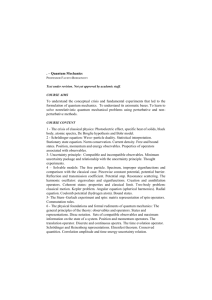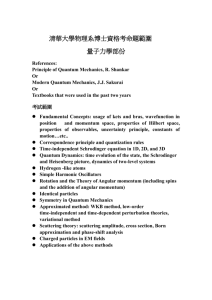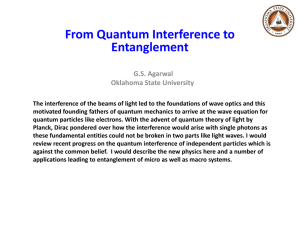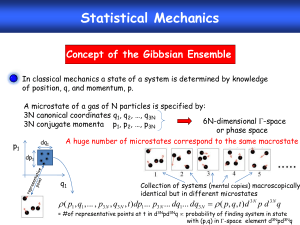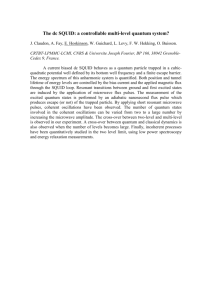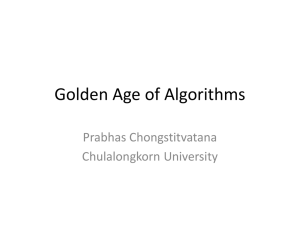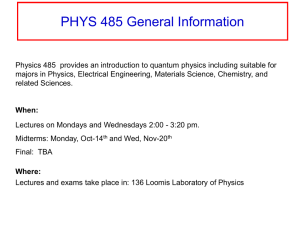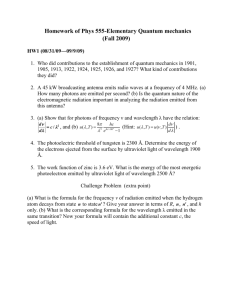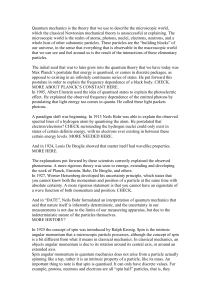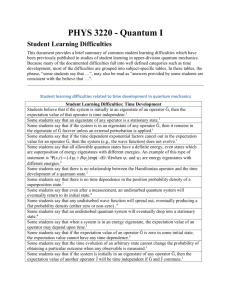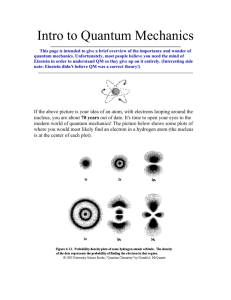Abstract
advertisement
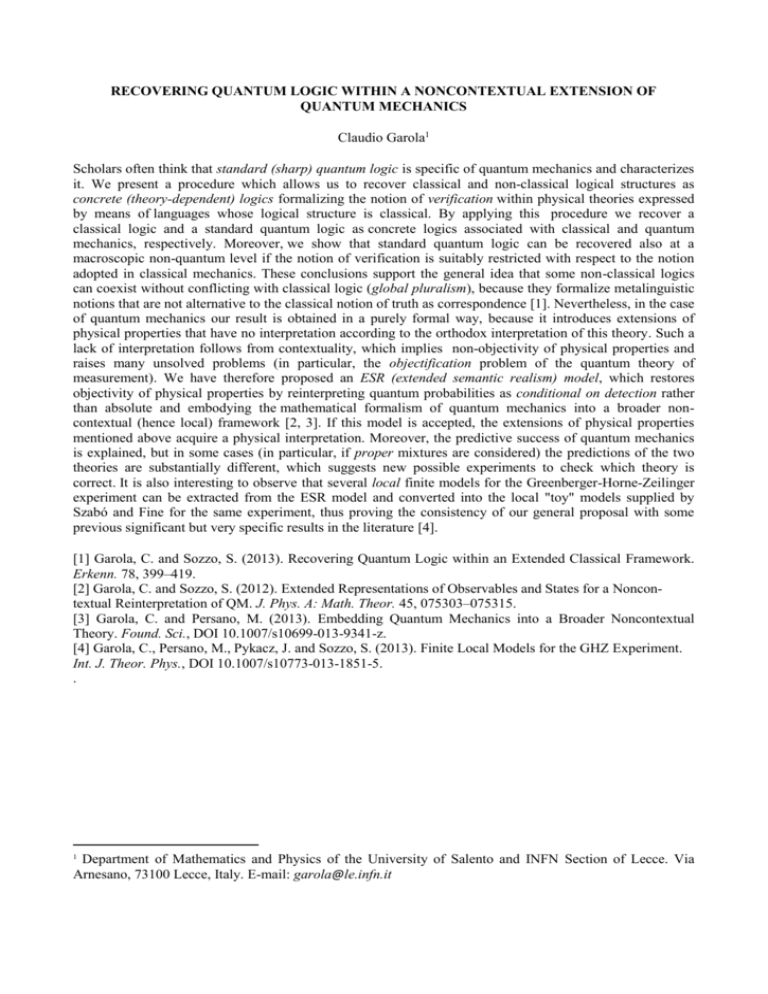
RECOVERING QUANTUM LOGIC WITHIN A NONCONTEXTUAL EXTENSION OF QUANTUM MECHANICS Claudio Garola1 Scholars often think that standard (sharp) quantum logic is specific of quantum mechanics and characterizes it. We present a procedure which allows us to recover classical and non-classical logical structures as concrete (theory-dependent) logics formalizing the notion of verification within physical theories expressed by means of languages whose logical structure is classical. By applying this procedure we recover a classical logic and a standard quantum logic as concrete logics associated with classical and quantum mechanics, respectively. Moreover, we show that standard quantum logic can be recovered also at a macroscopic non-quantum level if the notion of verification is suitably restricted with respect to the notion adopted in classical mechanics. These conclusions support the general idea that some non-classical logics can coexist without conflicting with classical logic (global pluralism), because they formalize metalinguistic notions that are not alternative to the classical notion of truth as correspondence [1]. Nevertheless, in the case of quantum mechanics our result is obtained in a purely formal way, because it introduces extensions of physical properties that have no interpretation according to the orthodox interpretation of this theory. Such a lack of interpretation follows from contextuality, which implies non-objectivity of physical properties and raises many unsolved problems (in particular, the objectification problem of the quantum theory of measurement). We have therefore proposed an ESR (extended semantic realism) model, which restores objectivity of physical properties by reinterpreting quantum probabilities as conditional on detection rather than absolute and embodying the mathematical formalism of quantum mechanics into a broader noncontextual (hence local) framework [2, 3]. If this model is accepted, the extensions of physical properties mentioned above acquire a physical interpretation. Moreover, the predictive success of quantum mechanics is explained, but in some cases (in particular, if proper mixtures are considered) the predictions of the two theories are substantially different, which suggests new possible experiments to check which theory is correct. It is also interesting to observe that several local finite models for the Greenberger-Horne-Zeilinger experiment can be extracted from the ESR model and converted into the local "toy" models supplied by Szabó and Fine for the same experiment, thus proving the consistency of our general proposal with some previous significant but very specific results in the literature [4]. [1] Garola, C. and Sozzo, S. (2013). Recovering Quantum Logic within an Extended Classical Framework. Erkenn. 78, 399–419. [2] Garola, C. and Sozzo, S. (2012). Extended Representations of Observables and States for a Noncontextual Reinterpretation of QM. J. Phys. A: Math. Theor. 45, 075303–075315. [3] Garola, C. and Persano, M. (2013). Embedding Quantum Mechanics into a Broader Noncontextual Theory. Found. Sci., DOI 10.1007/s10699-013-9341-z. [4] Garola, C., Persano, M., Pykacz, J. and Sozzo, S. (2013). Finite Local Models for the GHZ Experiment. Int. J. Theor. Phys., DOI 10.1007/s10773-013-1851-5. . Department of Mathematics and Physics of the University of Salento and INFN Section of Lecce. Via Arnesano, 73100 Lecce, Italy. E-mail: garola@le.infn.it 1

